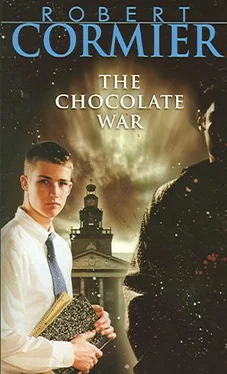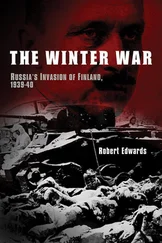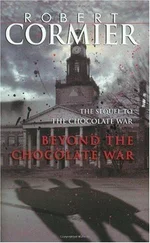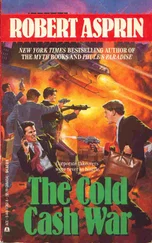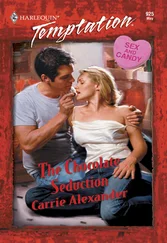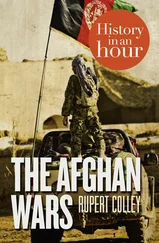"Well, I guess that's it then," Brother Leon said, rising, "I've detained you too long, Caroni."
"Brother Leon," Caroni said. He couldn't be dismissed at this point. "You said you wanted to discuss my mark…"
"Oh, yes, yes, that's right, my boy. That F of yours."
Caroni felt doom pressing upon him. But went on anyway. "You said teachers make mistakes, they get tired…"
Brother Leon was standing now. "Tell you what, Caroni. At the end of the term, when the marks close, I'll review that particular test. Perhaps I'll be fresher then. Perhaps I'll see merit that wasn't apparent before…"
Now it was Caroni's turn to feel relief from the tension, although his headache still pounded and his stomach was still upset. Worse than that, however, he had allowed Brother Leon to blackmail him. If teachers did this kind of thing, what kind of world could it be?
"On the other hand, Caroni, perhaps the F will stand," Brother Leon said "It depends…"
"I see, Brother Leon," Caroni said.
And he did see — that life was rotten, that there were no heroes, really, and that you couldn't trust anybody, not even yourself.
He had to get out of there as fast as possible, before he vomited all over Brother Leon's desk.
Adamo?"
"Three."
"Beauvais?"
"Five."
The Goober was impatient for the roll call to be over. Or, rather, for the roll call to reach Jerry Renault. Like everyone else, the Goober had finally learned that Jerry was carrying out a Vigil assignment — that's why he had refused to take the chocolates day after day, that's why he didn't want to talk about it with Goober. Now, Jerry could become himself again, human again. His football had suffered. "What the hell is the matter with you, Renault?" the coach asked in disgust yesterday, "do you want to play ball or not?" And Jerry had answered, "I'm playing ball." All the kids knew the double meaning his answer conveyed because it was public knowledge now. He and Goober had had only one brief conversation about the assignment — in fact, it wasn't really a conversation. Leaving football practice yesterday, Goober had whispered, "When does the assignment end?" And Jerry had said, "Tomorrow I take the chocolates."
"Hartnett?"
"One."
"You can do better than that, Hartnett," Leon said, but there was no anger, not even disappointment in his voice. Brother Leon was buoyant today and his mood had spread throughout the class. That's the way Leon's classes were — he set the mood and the temperature. When Brother Leon was happy everybody was happy, when he was miserable everybody was miserable.
"Johnson?"
"Five."
"Good, good."
Killelea… LeBlanc… Malloran… the roll call went on, the voices shouting out their sales and the teacher checking the names off on the sheet. The names and the responses sounded almost like a song, a melody for a classroom, a tune for many voices. Then Brother Leon called out "Parmentier." And there was tension in the air. Parmentier could have called out any number and it wouldn't have mattered, it wouldn't have created any impact at all. Because the next name was Renault.
"Three," Parmentier called out.
"Right," Brother Leon answered, making the check against the name. Looking up, he called "Renault."
The pause. The damn pause.
"No!"
The Goober felt as if his eyes were the lens for a television camera in one of those documentaries. He swung around in Jerry's direction and saw his friend's face, white, mouth half-open, his arms dangling at his sides. And then he swiveled to look at Brother Leon and saw the shock on the teacher's face, his mouth forming an oval of astonishment. It seemed almost as if Jerry and the teacher were reflections in a mirror.
Finally Brother Leon looked down.
"Renault," he said again, his voice like a whip.
"No. I'm not going to sell the chocolates."
Cities fell. Earth-opened. Planets tilted. Stars plummeted. And the awful silence.
W hy did you do it?
I don't know.
Have you gone crazy?
Maybe I have.
It was a crazy thing to do.
I know, I know.
The way that "No" popped out of your mouth — why?
I don't know.
It was like the third degree, only he was both interrogator and suspect, both tough cop and hounded prisoner, a cruel spotlight pinning him in a blinding circle of light. All of this in his mind, of course, as he tossed in his bed, the sheet twisted around him like a shroud, suffocatingly.
He fought the sheet, filled suddenly with the terror of claustrophobia, being buried alive. Aware of his mortality, he turned over again, entangled in the bedclothes. His pillow fell off the bed, hitting the floor with a dull thud, like a small body landing there. He thought of his mother dead in the coffin. When did death arrive? He had read a magazine article about heart transplants — even the doctors couldn't agree on the exact moment that death occurred. Listen, he told himself, no one can be buried alive these days, not like in the olden times when there was no embalming fluid and stuff. Now they removed all your blood and pumped in chemicals and stuff. To make certain you were dead. But suppose, let's just suppose that some small spark in your brain remained alive, and knew what was going on. His mother. Himself, someday.
He leaped from the bed in terror, flinging the sheet away. His body was moist, oozing perspiration. He sat on the edge of the bed, trembling. Then his feet touched the floor and the cool kiss of the linoleum established reality. The specter of suffocation vanished. He made his way through the darkness to the window, and pulled back the drape. The wind came up, scattering October leaves which fluttered to the ground like doomed and crippled birds.
Why did you do it?
I don't know.
Like a broken record.
Was it because of what Brother Leon does to people, like Bailey, the way he tortures them, tries to make fools of them in front of everybody?
More than that, more than that.
Then what?
He allowed the drape to fall back into place and surveyed the bedroom, squinting into the half-darkness. He padded over to the bed, shivering in the kind of coolness that can only be found in the middle of the night. He listened for night sounds. His father snored in the next room. A car gunned along the street outside. He'd love to be gunning along the street, going someplace, anywhere. I'm not going to sell the chocolates. Boy.
He hadn't planned to do any such thing of course. He'd been happy to have the terrible assignment all over with, the assignment completed and life normal once again. Every morning he dreaded the roll call, the necessity of facing Brother Leon, saying No and watching Leon's reaction — how the teacher tried to pass off Jerry's rebellion as if it didn't matter, putting on a pathetic pretense of indifference but a pretense that was so transparent, so phony. It had been funny and terrible at the same time, watching Leon call the roll and waiting for his name to be called, and finally his name blazing in the air and the defiant No . The teacher might have been able to carry off his act successfully, except for his eyes. His eyes gave him away. His face was always under control but his eyes showed his vulnerability, gave Jerry a glimpse into the hell that was burning inside the teacher. Those moist eyes, the white eyeballs and the diluted blue of his pupils, eyes that reflected everything that went on in the class, reacting to everything. After Jerry had learned that the secret of Brother Leon lurked in his eyes, he became watchful, seeing the way the eyes betrayed the teacher at every turn. And then there came a time when Jerry was tired of it all, tired of watching the teacher, disgusted with the contest of wills that wasn't really a contest because Jerry had no choice. Cruelty sickened Jerry — and the assignment, he realized after a few days, was cruel, even though Archie Costello had insisted that it was only a stunt that everyone would get a kick out of later. And so he had finally waited, impatient for the assignment to come to an end, eager for that silent battle between Brother Leon and himself to be over with. He wanted life to be normal again — football, even his homework, without that daily burden weighing him down. He had felt isolated from the other fellows, separated by the secret he was forced to carry. He'd been tempted once or twice to talk it over with The Goober. In fact, he'd almost done so once when Goob tried to start a conversation. Instead, he'd cautioned himself to hold on for the two weeks, to carry it off, secrecy and all, and be done with it for good. He had met Brother Leon in the corridor late one afternoon after football practice and had seen hate flashing in the teacher's eyes. More than hate: something sick. Jerry had felt soiled, dirty, as if he should run to confession and bare his soul. And he'd consoled himself: when I accept the chocolates and Brother Leon realizes I was only carrying out a Vigil assignment then everything will be fine again.
Читать дальше
